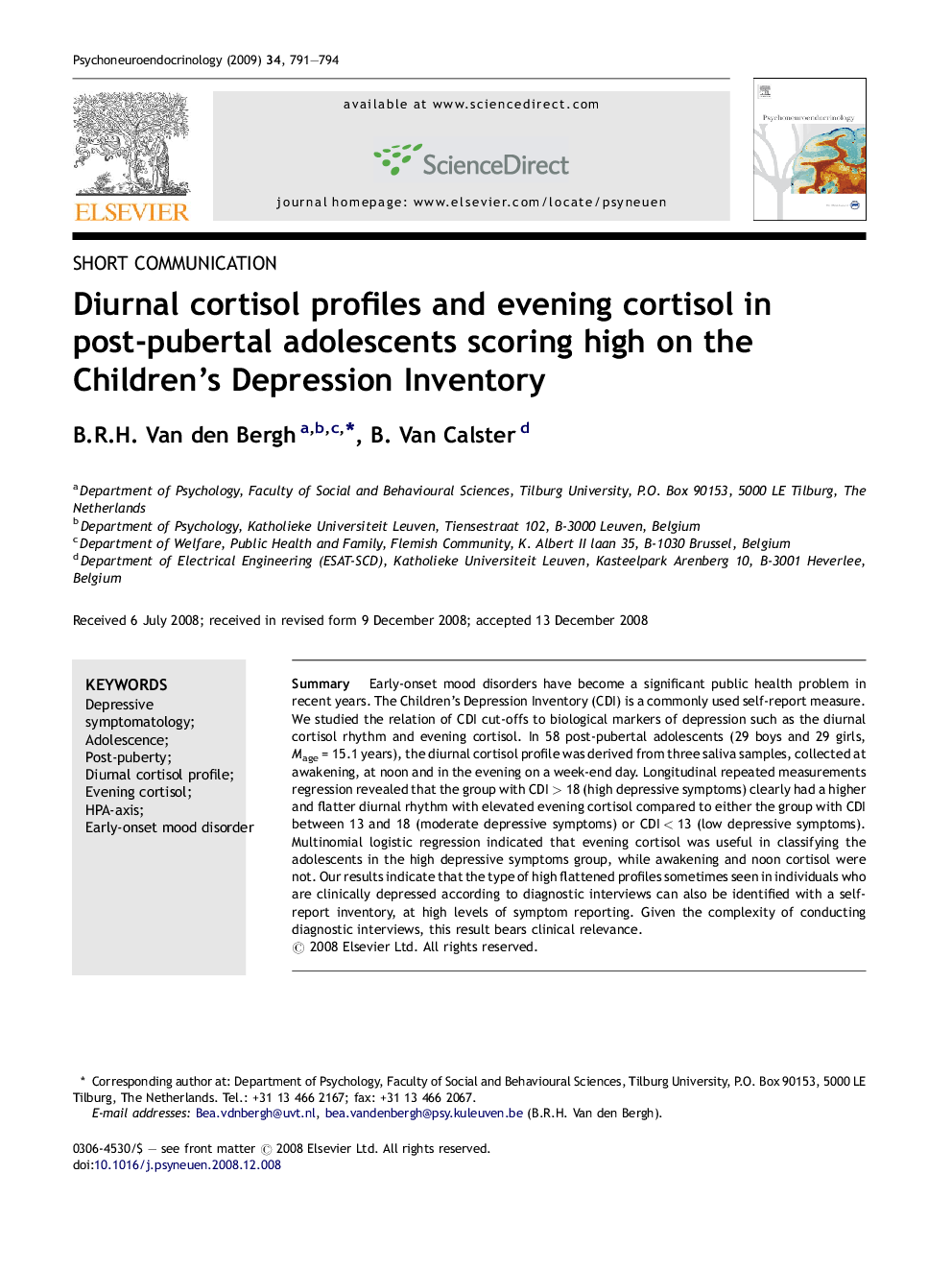| Article ID | Journal | Published Year | Pages | File Type |
|---|---|---|---|---|
| 337065 | Psychoneuroendocrinology | 2009 | 4 Pages |
SummaryEarly-onset mood disorders have become a significant public health problem in recent years. The Children's Depression Inventory (CDI) is a commonly used self-report measure. We studied the relation of CDI cut-offs to biological markers of depression such as the diurnal cortisol rhythm and evening cortisol. In 58 post-pubertal adolescents (29 boys and 29 girls, Mage = 15.1 years), the diurnal cortisol profile was derived from three saliva samples, collected at awakening, at noon and in the evening on a week-end day. Longitudinal repeated measurements regression revealed that the group with CDI > 18 (high depressive symptoms) clearly had a higher and flatter diurnal rhythm with elevated evening cortisol compared to either the group with CDI between 13 and 18 (moderate depressive symptoms) or CDI < 13 (low depressive symptoms). Multinomial logistic regression indicated that evening cortisol was useful in classifying the adolescents in the high depressive symptoms group, while awakening and noon cortisol were not. Our results indicate that the type of high flattened profiles sometimes seen in individuals who are clinically depressed according to diagnostic interviews can also be identified with a self-report inventory, at high levels of symptom reporting. Given the complexity of conducting diagnostic interviews, this result bears clinical relevance.
